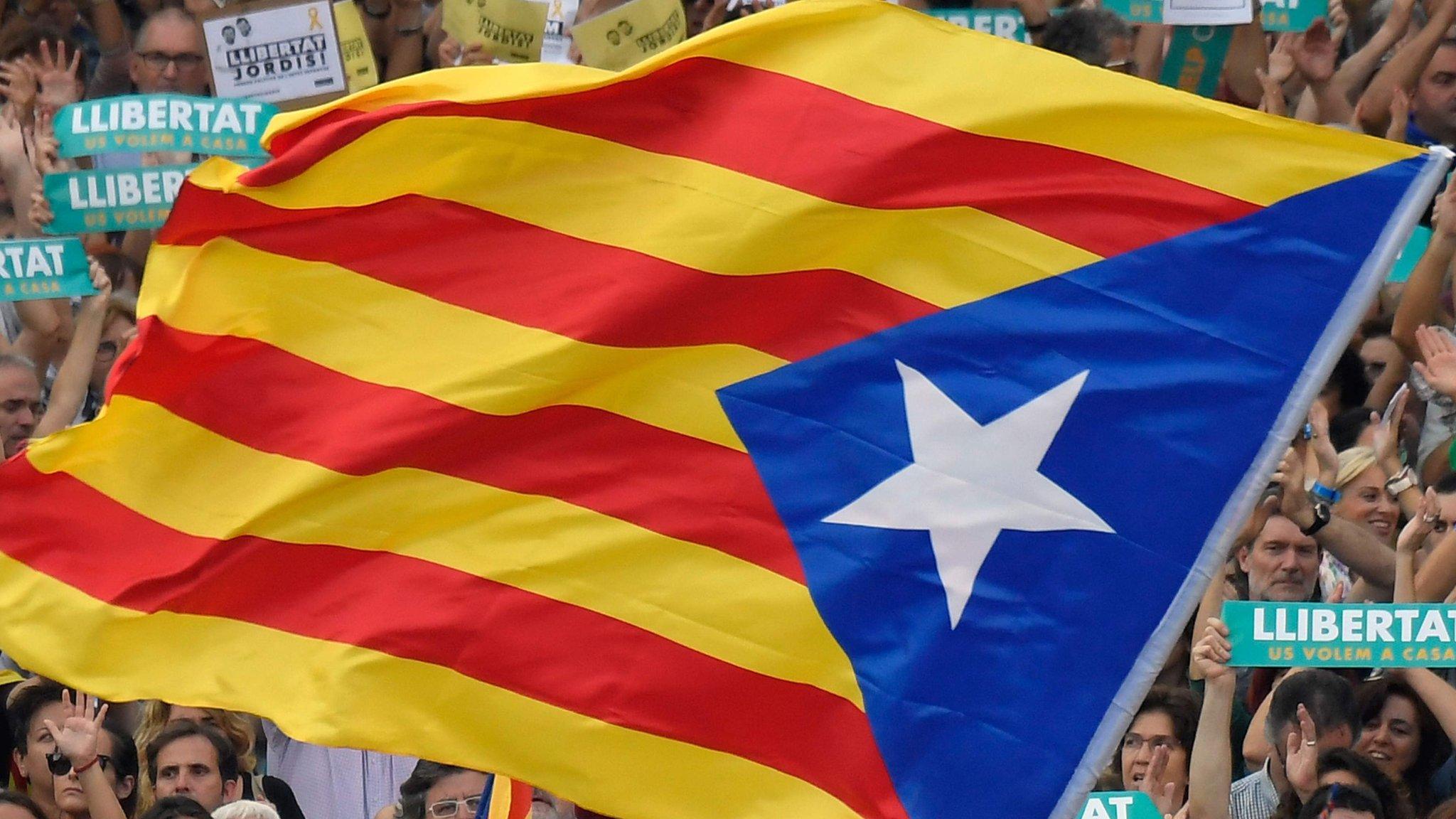Spain Catalonia: Madrid mass protest over talks policy
- Published
Protesters angered by the government's outreach to Catalan separatists call for new elections in Spain
Supporters of Spanish conservative and centrist parties have held a protest in Madrid against government plans to hold talks with Catalan separatists.
The centre-right Popular Party (PP) and Ciudadanos (Citizens) say Prime Minister Pedro Sánchez's plan to appoint an intermediary for the talks amounts to treason.
The separatists have rejected the offer - they want a new independence vote.
Like the right, the ruling Socialists also oppose Catalan independence.
Far-right groups including the Vox party are also present at the protest, held under the slogan "For a united Spain. Elections now!"
Protesters filled the Spanish capital's Colon Square and nearby streets, many of them chanting "long live Spain". Police put the total number of demonstrators at 45,000.
What are the protesters saying?
They say the government's offer to separatists to hold round table talks and appoint a special rapporteur amounts to a capitulation and they want elections scheduled for 2020 brought forward.
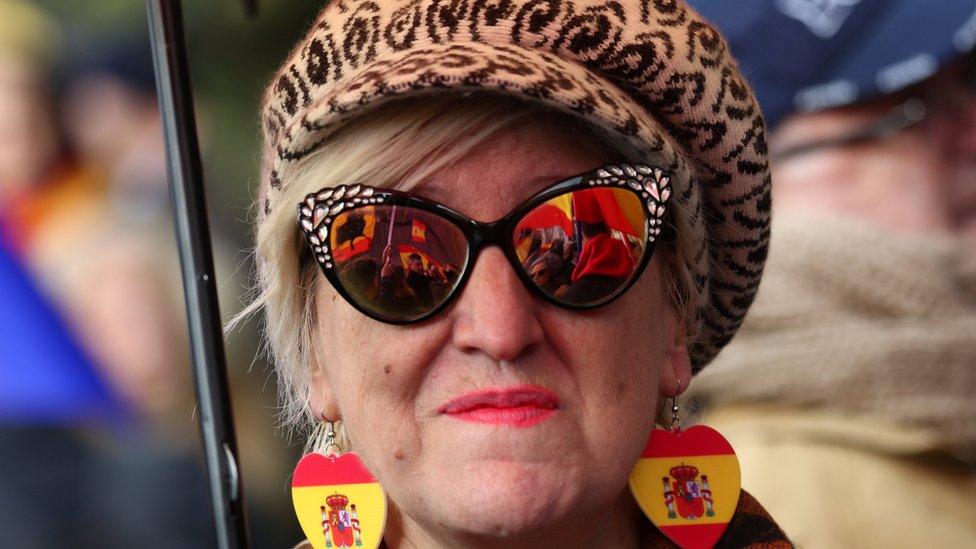
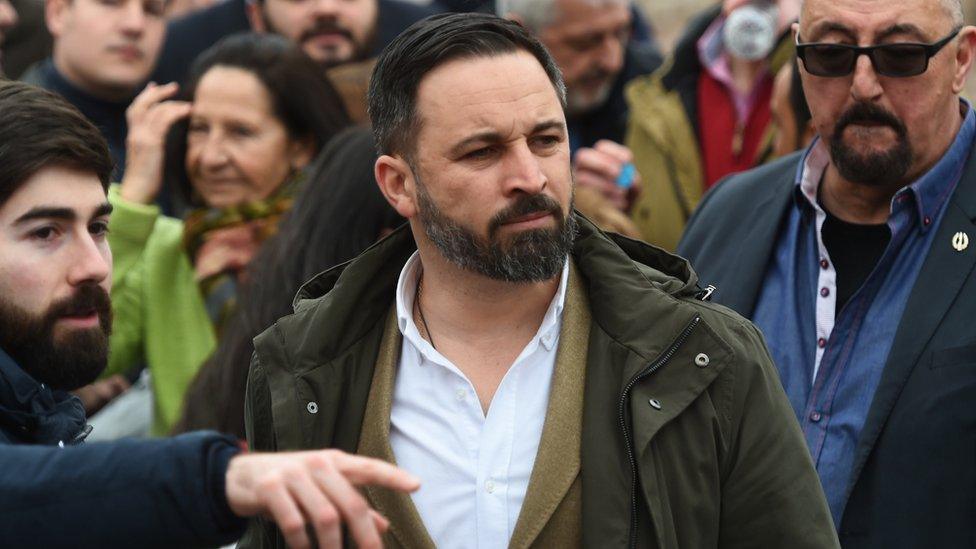
The far-right Vox party is also part of the protest - its president Santiago Abascal seen here
One protester, Mabel Campuzano, told Reuters news agency that Mr Sánchez was "betraying Spain and we think that Spaniards don't deserve him as the president of the government".
In a speech, PP leader Pablo Casado denounced Mr Sánchez's policies as "Socialist surrender" and "deals under the table", Efe news agency reports.
"Sánchez's time is over," Mr Casado said, adding that the protests were a turning point and the beginning of a return to "harmony and legality" in Spain.
What does the government say?
Speaking shortly afterwards at a local election campaign meeting, Mr Sánchez said his Socialist party had always been on the side of dialogue, and was now attempting to resolve a crisis made worse by the PP while it was in power.
On Friday the government said the separatists had rejected its framework for talks.
What happened to Catalonia? One year on
Deputy Prime Minister Carmen Calvo said the situation had "stalled", as separatist calls for an independence referendum were "not acceptable".
Meanwhile the separatists accused the government itself of abandoning dialogue.
What's the background?
Mr Sánchez heads a minority government that relies on the support of other parties including Catalan nationalists.
His government faces a key vote on Wednesday on its proposed 2019 budget - failure to approve it could lead to a snap election.
Catalan nationalist parties have said that their support for the budget depends on whether Mr Sanchez's proposed talks with separatists include the issue of independence.
Mr Sánchez has, however, ruled out the possibility of a Catalan independence referendum.
Polls show that the PP, Ciudadanos and Vox would together win a majority in a general election. In December the three parties together won power in the southern region of Andalusia, ousting the Socialists, who had been in power there for 36 years.
What has been happening in Catalonia?
Catalan nationalists regained power in Barcelona in May, after a seven-month period of direct rule by Madrid.
Mr Sánchez became prime minister the following month, making negotiations with the pro-independence movement his priority.
Tensions remain high, as many Catalans resent Madrid's show of force last year, when it charged pro-independence leaders with sedition.
Some of them are due to go on trial on Tuesday and face up to 25 years in prison.
In December Catalan premier Quim Torra irritated the Spanish government by praising Slovenia's successful path to independence. It broke away from Yugoslavia in 1991, after a 10-day war.
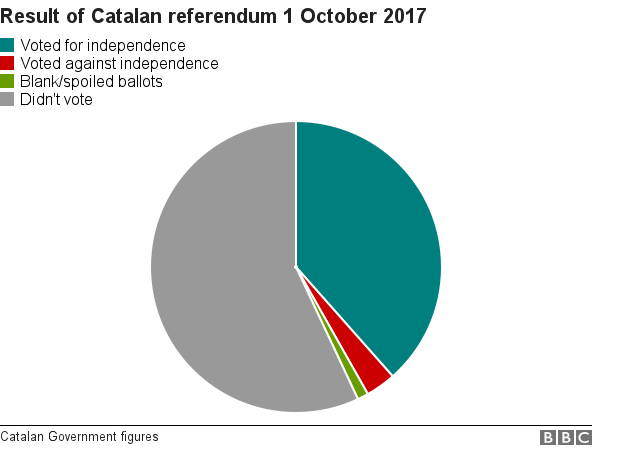
- Published1 October 2018
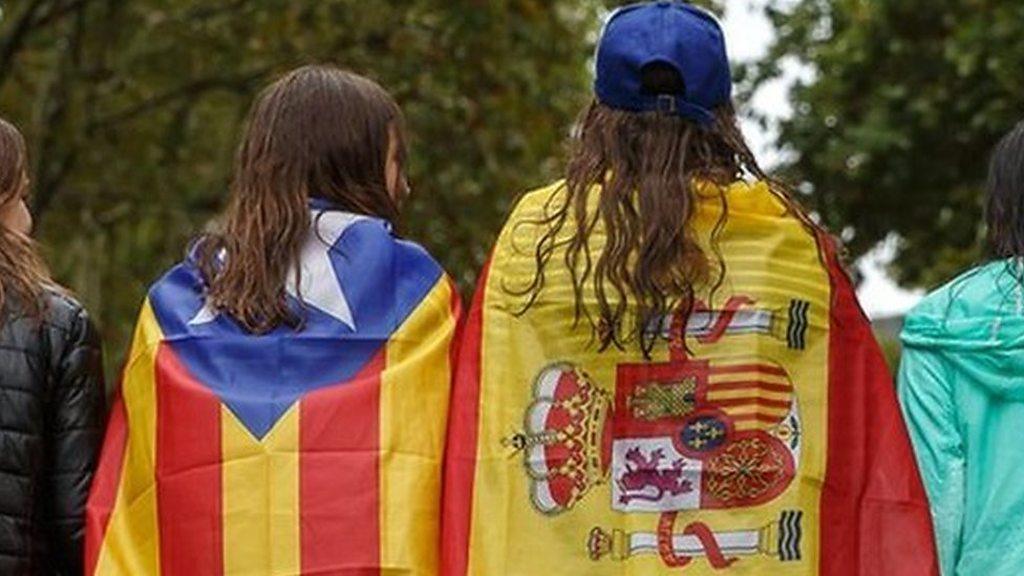
- Published27 October 2018
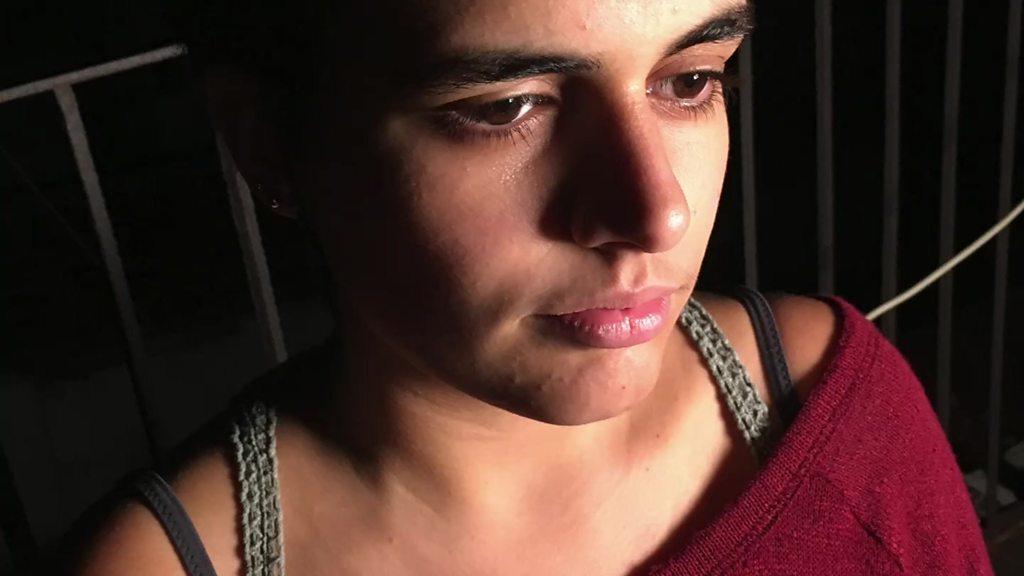
- Published14 October 2019
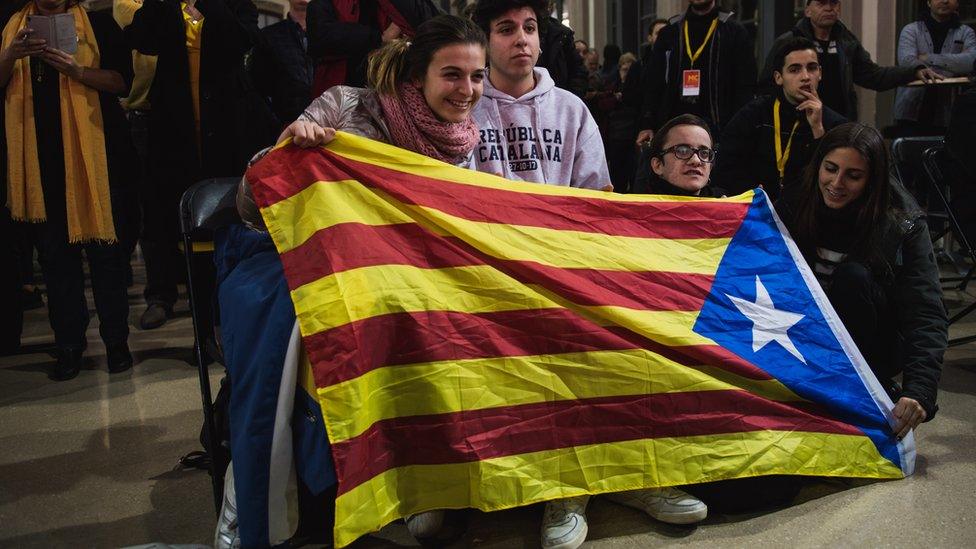
- Published4 October 2018
